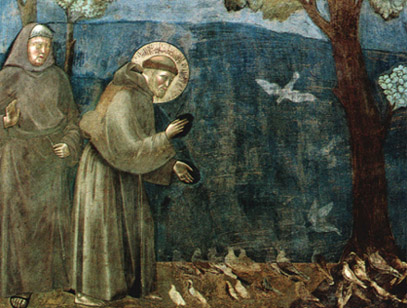Some time ago, when a stir was made by a rather striking book called Who Moved the Stone? which might almost be described, with all reverence, as a divine detective story and almost a theological thriller, a pugnacious little paper in Fleet Street made a remark which has always hovered in my memory as more mysterious than any mystery story in the world. The writer said that any man who believes in the Resurrection is bound also to believe in the story of Aladdin in The Arabian Nights. I have no idea what he meant. Nor, I imagine, had he… There is no sort of logical connection between believing in one miraculous event and believing in another, even if they were exactly alike and not utterly different. If I believe that Captain Peary reached the North Pole, I am not therefore bound to believe that Dr. Cook also reached the North Pole, even if they both arrived with sleds and dogs out of the same snows. It is a fallacy, then, even where the two things are close enough to be compared. But the comparison between the Gospel miracle and the Arabian fairy-tale is about the most unfortunate in the world. For in the one case there is a plain and particular reason for thinking the thing true, or at least meant to be true. And in the other there is a plain and particular reason for realizing that the tale is not only untrue, but is not even meant to be true.
The historical case for the Resurrection is that everybody else, except the Apostles, had every possible motive to declare what they had done with the body, if anything had been done with it. The Apostles might have hidden it in order to announce a sham miracle, but it is very difficult to imagine men being tortured and killed for the truth of a miracle which they knew to be a sham. In the case of the Apostles’ testimony, the general circumstances suggest that it is true. In the case of the Arabian tale, the general circumstances avow and proclaim that it is false. For we are told in the book itself that all the stories were told by a woman merely to amuse the king and distract his attention from the idea of cutting off her head. A romancer in this personal situation is not very likely to confine herself strictly to humdrum accuracy, and it would be impossible to more plainly inform the reader that all the tales are taradiddles. In the one case, then, we have witnesses who not only think the thing true, but do veritably think it is as true as death, or truer than death. They therefore prefer death to the denial of its truth. In the other sense we have a storyteller who, in trying to avoid death, has every motive to tell lies. If St. John the Baptist had wished to avoid being beheaded, and had saved his life by inventing a long string of Messianic or early Christian legends on the spur of the moment, in order to hold the attention of King Herod, I should not regard any ‘resurrection myth’ he might tell as a strong historical argument for the Resurrection. But, as the Apostles were killed as St. John was killed, I think their evidence cannot be identified by sound scholarship as a portion of the Arabian Nights.
– “About Beliefs” in On Lying in Bed.
(original source unknown [to The Hebdomadarian])

